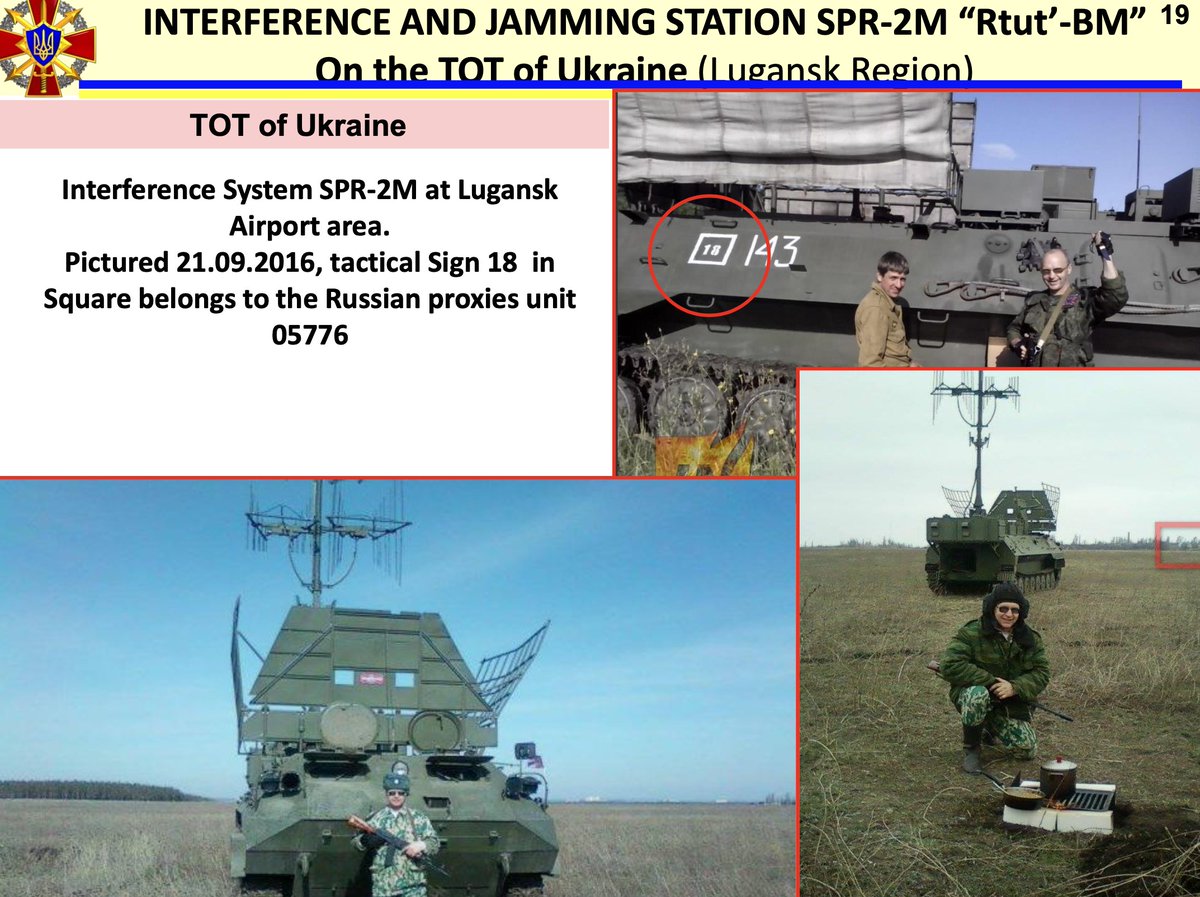So Russian EW capabilities have been summarised by the UA General Staff here:
This is from March 2019 so three years old but still interesting.
Mainly equipment recognition and Table of Equipment & Organisation
1/
brushbeater.org/wp-content/upl…
This is from March 2019 so three years old but still interesting.
Mainly equipment recognition and Table of Equipment & Organisation
1/
brushbeater.org/wp-content/upl…

How these systems divide in terms of task and layer.
Also useful equipment recognition as these are the specials that the UA will have wanted to destroy early on in the campaign.
2/
Also useful equipment recognition as these are the specials that the UA will have wanted to destroy early on in the campaign.
2/

In case you wondered what made up the Leer-3... then here you go.
The RB-341В "Leer-3" electronic warfare system supported by Orlan-10 drones. Task is to intercept satellite navigation signals, 3G, 4G communications and text messages.
The anti-smartphone system!
3/
The RB-341В "Leer-3" electronic warfare system supported by Orlan-10 drones. Task is to intercept satellite navigation signals, 3G, 4G communications and text messages.
The anti-smartphone system!
3/

Yes I am now indulging my inner nerd.
But as I've been pointing out in my other threads and writing on hacking, SIGINT and battlefield communications, this stuff makes up one end of what we call the new war ecology as we describe it in #radicalwar.
5/
But as I've been pointing out in my other threads and writing on hacking, SIGINT and battlefield communications, this stuff makes up one end of what we call the new war ecology as we describe it in #radicalwar.
5/

And what I really love about this UA General Staff slide deck is that they are happy to use images taken by the Russians themselves on their personal smartphones.
Photos the Russians no doubt post on their personal social media feeds... 😀
#ohtheirony
Photos the Russians no doubt post on their personal social media feeds... 😀
#ohtheirony

• • •
Missing some Tweet in this thread? You can try to
force a refresh






